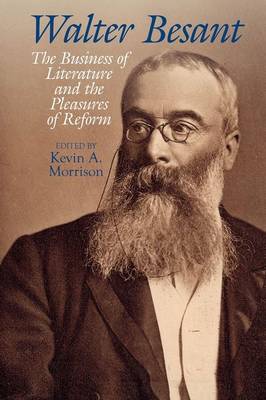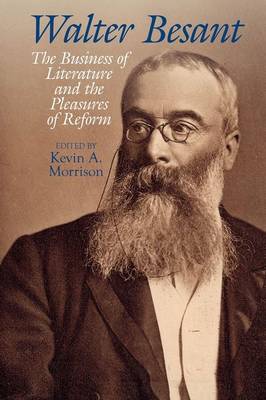
- Retrait gratuit dans votre magasin Club
- 7.000.000 titres dans notre catalogue
- Payer en toute sécurité
- Toujours un magasin près de chez vous
- Retrait gratuit dans votre magasin Club
- 7.000.0000 titres dans notre catalogue
- Payer en toute sécurité
- Toujours un magasin près de chez vous
Walter Besant
The Business of Literature and the Pleasures of Reform
Description
In the 1880s and 1890s, Walter Besant was one of Britain's most lionized living novelists. Like many popular writers of the period, Besant suffered from years of critical neglect. Yet his centrality to Victorian society and culture all but ensured a revival of interest. While literary critics are now rediscovering the more than forty works of fiction that he penned or co-wrote, as part of a more general revaluation of Victorian popular literature, legal scholars have argued that Besant, by advocating for copyright reform, played a crucial role in consolidating a notion of literary property as the exclusive possession of the individuated intellect. For their part, historians have recently shown how Besant - as a prominent philanthropist who campaigned for the cultural vitalization of impoverished areas in east and south London - galvanized late Victorian social reform activities. The expanding corpus of work on Besant, however, has largely kept the domains of authorship and activism, which he perceived as interrelated, conceptually distinct. Analysing the mutually constitutive interplay in Besant's career between philanthropy and the professionalization of authorship, Walter Besant: The Business of Literature and the Pleasures of Reform highlights their fundamental interconnectedness in this Victorian intellectual polymath's life and work.
Spécifications
Parties prenantes
- Editeur:
Contenu
- Nombre de pages :
- 264
- Langue:
- Anglais
- Collection :
- Tome:
- n° 76
Caractéristiques
- EAN:
- 9781789620351
- Date de parution :
- 07-11-19
- Format:
- Livre relié
- Format numérique:
- Genaaid
- Dimensions :
- 157 mm x 236 mm
- Poids :
- 544 g

Les avis
Nous publions uniquement les avis qui respectent les conditions requises. Consultez nos conditions pour les avis.





